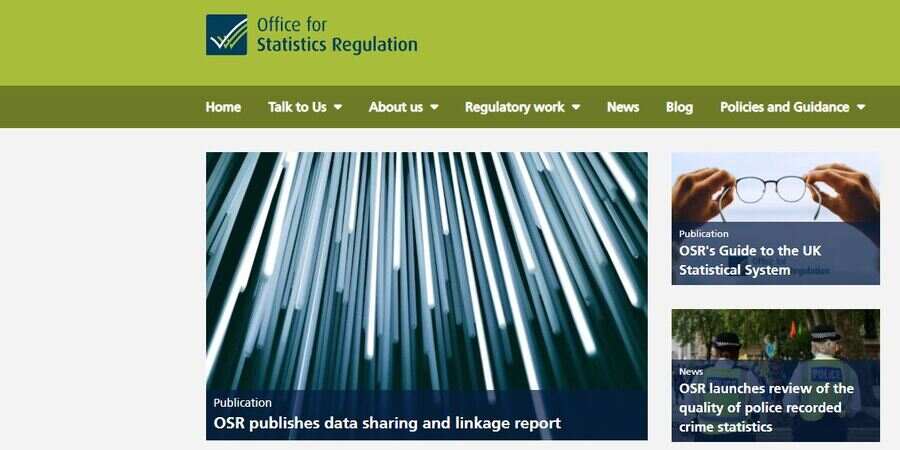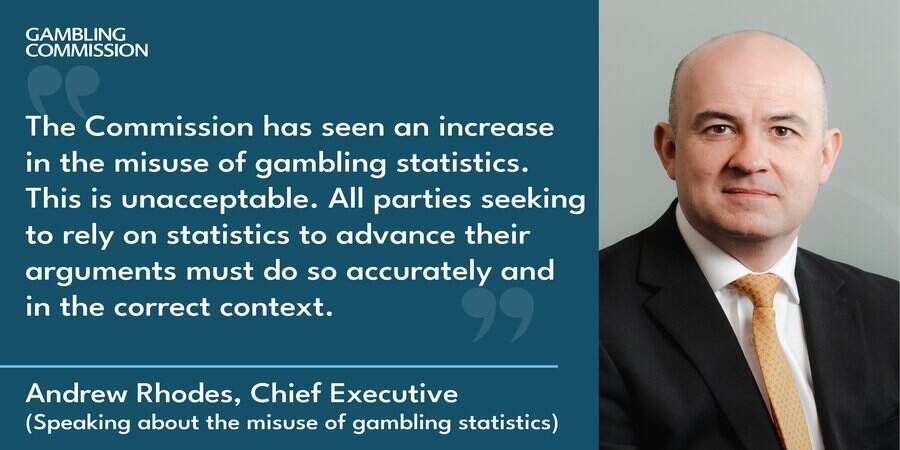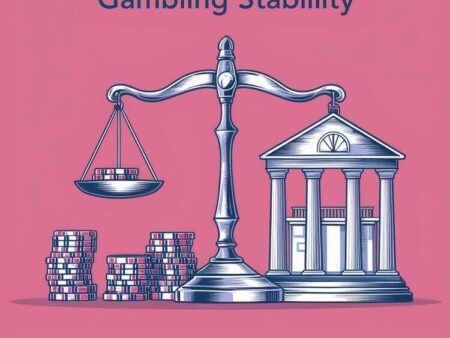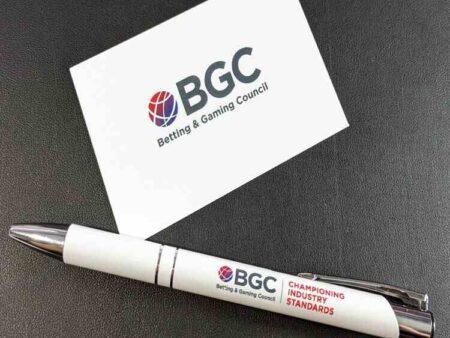By Jon Bryan | Expected reading time 4 mins
Last Updated: October 29, 2023

Following the publication of the Gambling White Paper in April 2023, the Gambling Commission begun a series of consultations in July 2023. Now, in August 2023, the CEO of the Commission has written an Open Letter on the misuse of gambling statistics. Writing for SlotsHawk, Jon Bryan considers where we are.
THE GAMBLING COMMISSION SPEAKS OUT
In an open letter this month, the CEO of the Gambling Commission (GC) spoke out about ‘the misuse of statistics’. Andrew Rhodes said that whilst gambling ‘is an issue that can divide opinion’, and that everyone ‘has the right to put forward their argument’, it is ‘wholly unacceptable’ to ‘misuse statistics to support that argument’. He went on to state that ‘The Commission is very concerned at the significant increase in the misuse of statistics around gambling as different parties seek to make persuasive arguments for or against
different proposals.’
Rhodes then continues his open letter, giving some examples of the types of misuse that he is referring to and where the Commission have been asked to set the record straight. The main concern of the GC is in
statistics on problem gambling, which is perhaps understandable given their importance, and the statutory obligations of the Commission. It is worth stating what the GC might do if a misuse of statistics is brought to
their attention: ‘Where Official Statistics have been used inaccurately, the Commission will generally assume the misuse was accidental and ask the party to correct the record. If the party fails to do so, or declines, then we will consider referring the matter to the Office for Statistics Regulation (OSR). Something we have done recently. The Commission also reserves the right to publicly challenge the misuse of statistics by any party, if they fail to correct their misstatement.’

What impact this open letter has on the debate around gambling is yet to be seen. And we will not know for some time whether any of the formal action that the Commission may take (as outlined above) influences the way that gambling is discussed and how data is used. Personally, I favour using statistics in the correct way, making sure that if context and caveats are important, they are outlined and explained with that in mind. However, I do wonder whether this intervention was a worthwhile undertaking by the GC. In the short term, it will no doubt unite many of those who largely disagree on gambling, but broadly agree on a dislike of the Gambling Commission. The content of a large number of Quote-Tweets on this post indicates a general level of disdain for the intervention by Andrew Rhodes. But what might this intervention mean in the longer term?

AN ERA OF FACT-CHECKING?
We are living in an age where there has been considerable discussion and change in the checking of ‘facts’. The 2016 USA election campaign (and other events) have changed the way that facts and data are viewed and discussed. We often see governmental-type organisations providing data which we are encouraged to see as sacrosanct. When we look at the data that the Gambling Commission produces, I have no problem with referring to that data and treating it with the importance and respect that it deserves. The Commission has access to a considerable amount of data, and they also do their own research. Data can speak for itself, but there is also the space for data to be interpreted differently, or for the conclusions that one person draws from that data to differ from those of another.
We can see this if we look at the open letter from Rhodes where he discusses the rate of problem gambling. As he begins to come to his final conclusions, he states: ‘What is clear from the statistics is that the problem gambling rate overall is low, compared to the level of participation’.
But Rhodes then takes a further step, and proclaims:
‘When we go beneath the surface of those numbers the picture is more complicated…Even with a relatively low proportion of people experiencing problem gambling we must remember that this can and does have catastrophic consequences and equates to hundreds of thousands of people directly affected and a greater number amongst friends, families and others.’
While the statistic and the extended commentary might both be true at the same time, not everyone would qualify things in the way that Rhodes has, by using, for example, the word ‘catastrophic’. He is entitled to use the descriptive language of his choice, but others are entitled to say that he is wrong to do so. It is perfectly reasonable to concentrate discussion and commentary on the low level of problem gambling, without elaborating and appearing to qualify that statistic. You could say that by using the language of ‘catastrophe’, it downplays the low level of problem gambling in this country. The longer-term impact of this intervention, and Rhodes’s open letter, may become more apparent as the White Paper consultations on gambling continue, which I will briefly turn to.
HAVING YOUR SAY – A NEW VOICE FOR THE GAMBLING CONSUMER
For those who haven’t noticed, the first of a series of consultations launched by the Gambling Commission in response to the White Paper are now live. They close in October. Although some have questioned the futility of responding, there is still a need for the gambling consumer to speak out. Our views may not always be taken that seriously, but if we fail to say something, it is difficult to complain afterwards.
That’s why it’s very pleasing to see a new set of voices who are willing to speak up for the gambler – The Gamblers Consumer Forum. The GCF aim to be ‘the voice of gamblers on UK gambling reform’ and are led by Abbie MacGregor and Andrew Woodman. It is good to see that one of their aims is to speak up for the gambler, who ‘has been unrepresented in this whole discussion’. I’ll certainly be supporting their work and following what they are doing with great interest, but I will also be commenting direct to the Gambling Commission in their latest consultations. I encourage you to do the same.
Jon Bryan is a Gambling Writer and Poker Player. His new pamphlet “Risking It All: The freedom to gamble” is now available to purchase or free to download. Follow him on Twitter @JonBryanPoker.







